India Resources
Pull down to filter search from all of this country’s resources.
Pull down to filter search from all of this country’s resources.
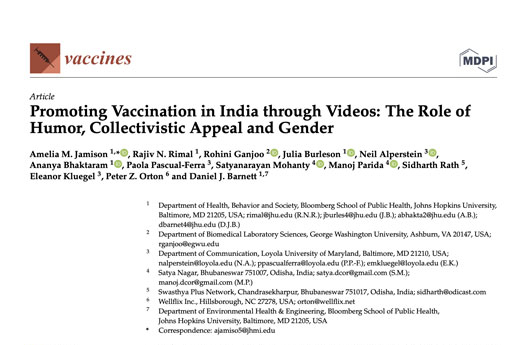
This paper investigates the impact of different factors on beliefs about vaccines and vaccination in India through video-based public service announcements.
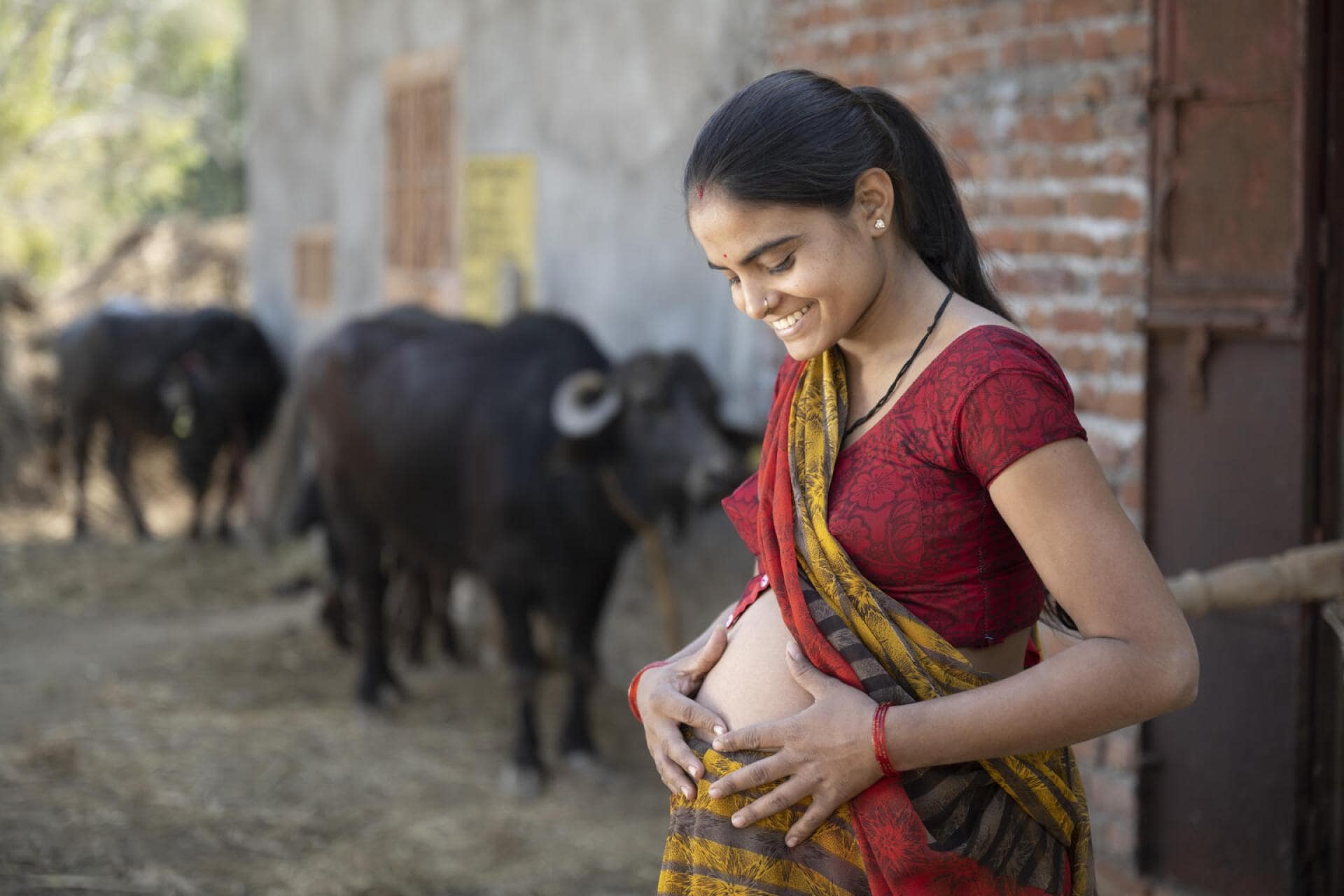
With the COVID-19 pandemic entering its fourth year, we asked UNICEF health experts to explain what we now know about the best ways for pregnant women to protect themselves and their babies.
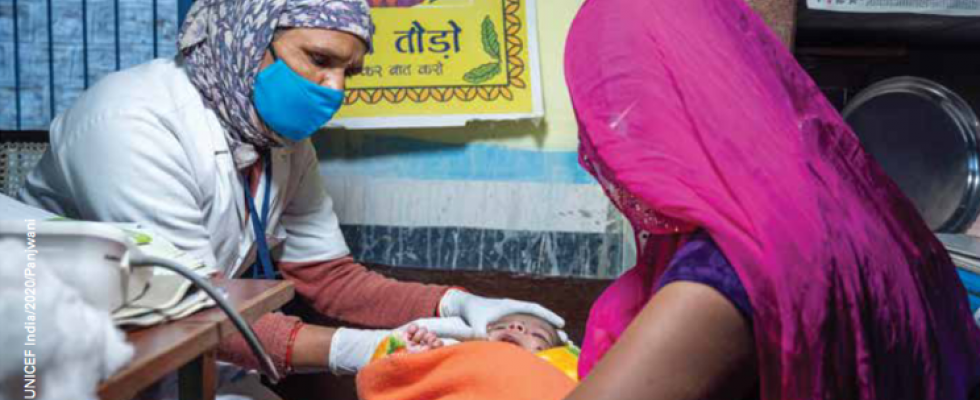
The methodology for this report included a literature review of available documentation and research, key informant interviews, and focus group discussions with UNICEF country and regional offices and partners. The process led to a series of six case studies, which describe predominantly positive campaign experiences, documenting lessons and good practices that can inform future immunisation programmes carried out during COVID-19 or similar circumstances.
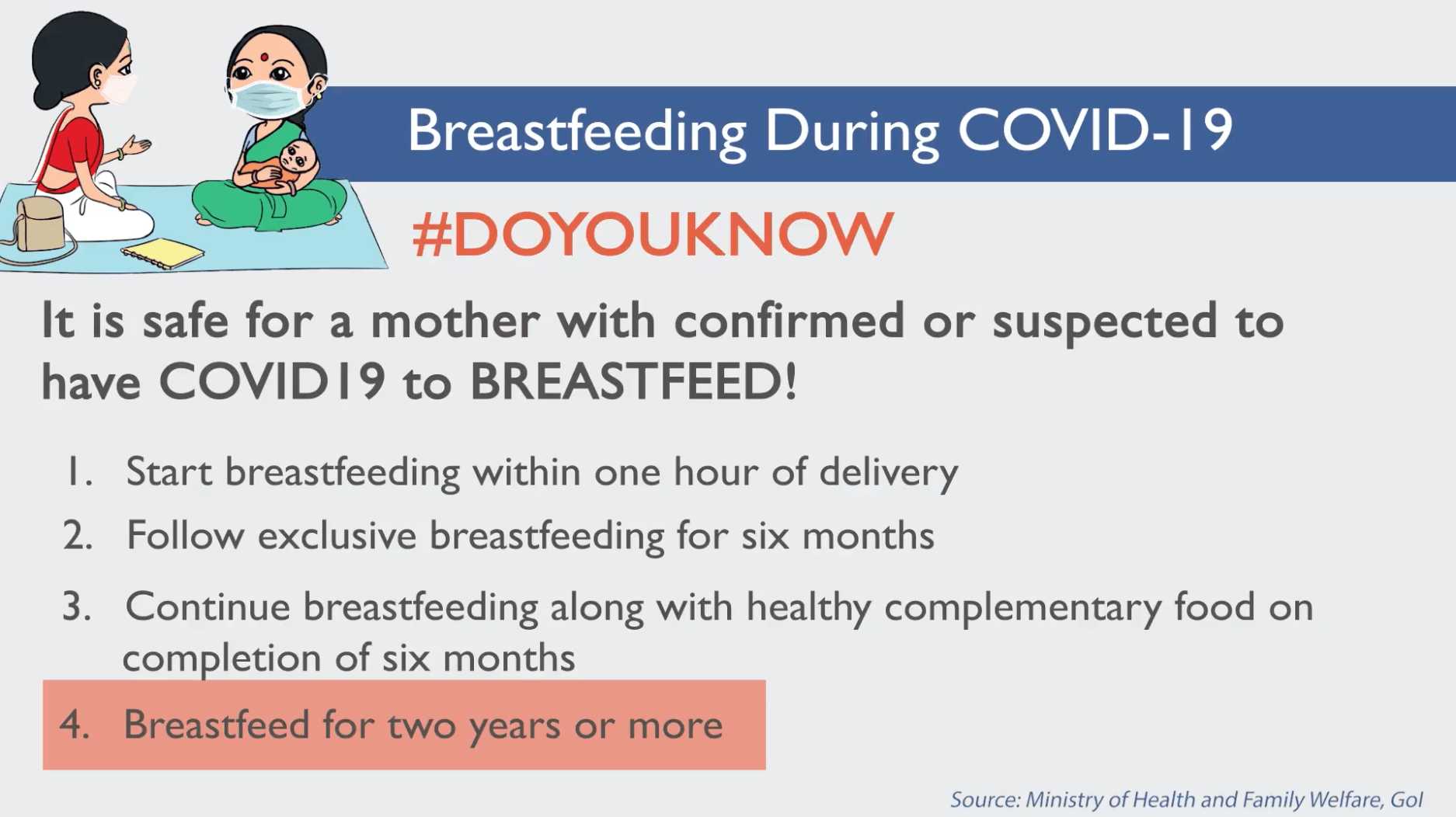
It is completely safe for a mother with confirmed or suspected of COVID-19 to breastfeed.

Here’s how children in India are feeling about learning at home during COVID-19.

Being a parent is a daily challenge and faced with the realities of COVID 19, social distancing and self-quarantine, it may be a struggle. For parents, the best way to help their children is to firstly take care of themselves.
Self-care during these times is not selfish because it enables the caregivers to be there for their children as a stable, calm and soothing parent. This way, parents will also be able to better understand their children and help them feel reassured, relaxed and focused.
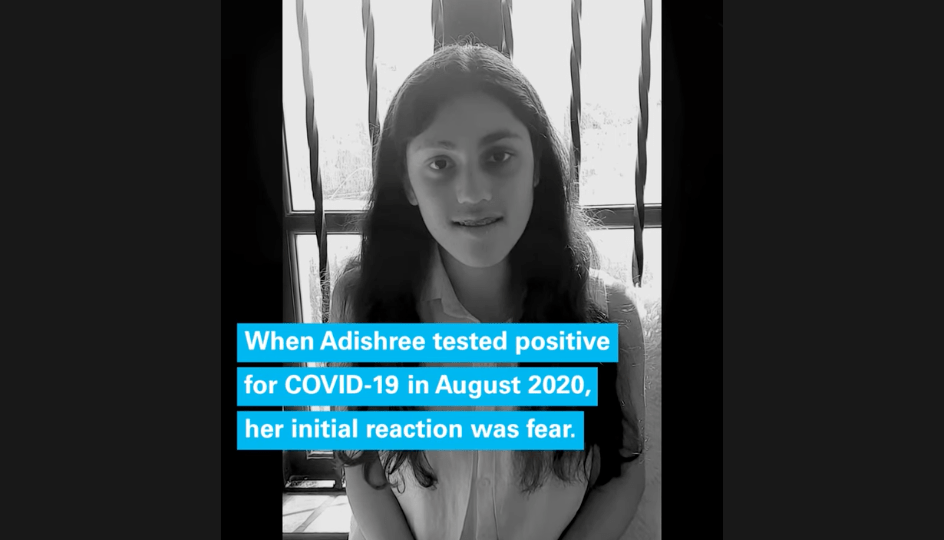
Athishree was scared, hesitant to even talk to her friends when she first tested positive for #coronavirus.
While in quarantine, she taught herself the importance of opening up about her experiences.
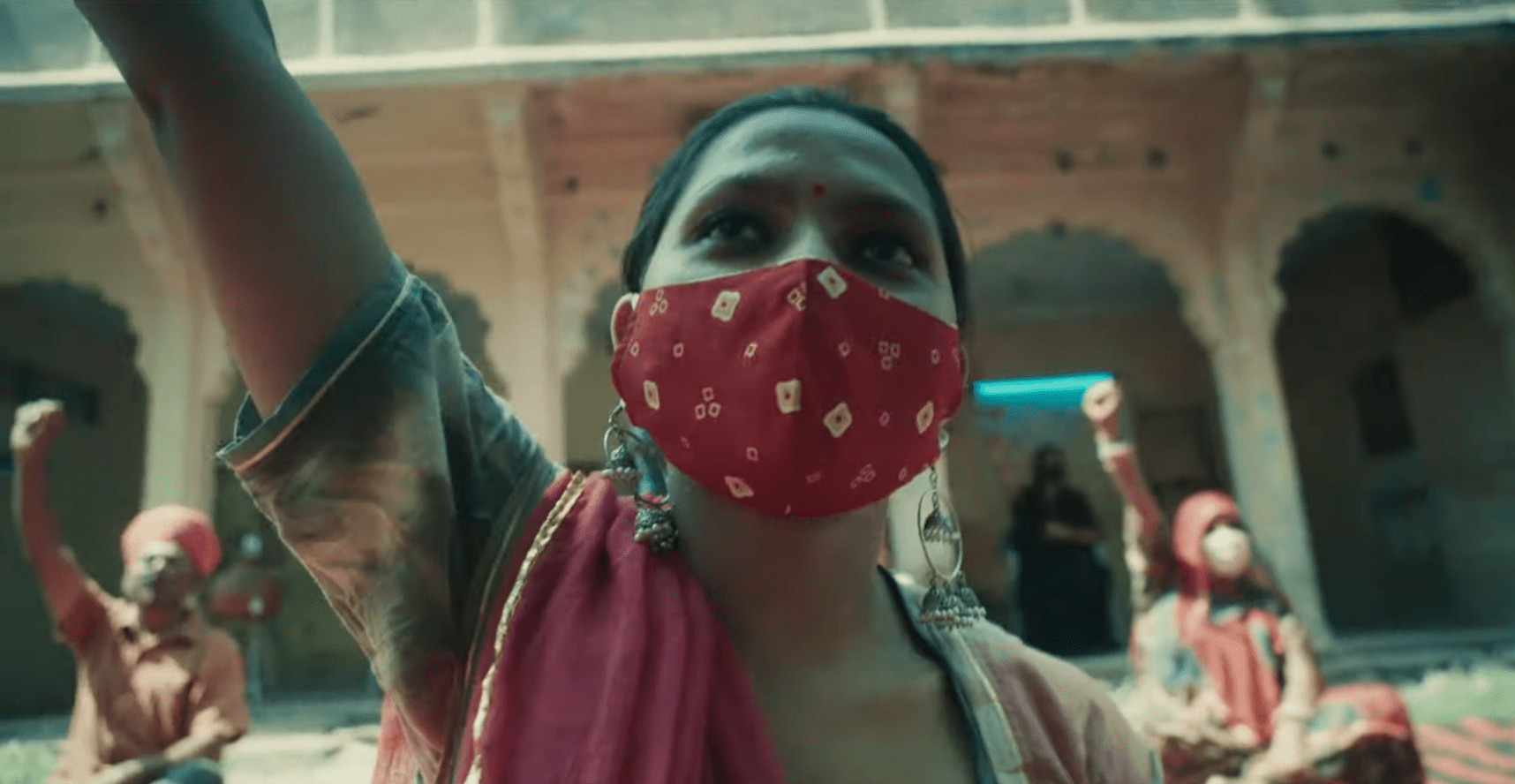
We all have to stay ready. Only together can we win against COVID-19.
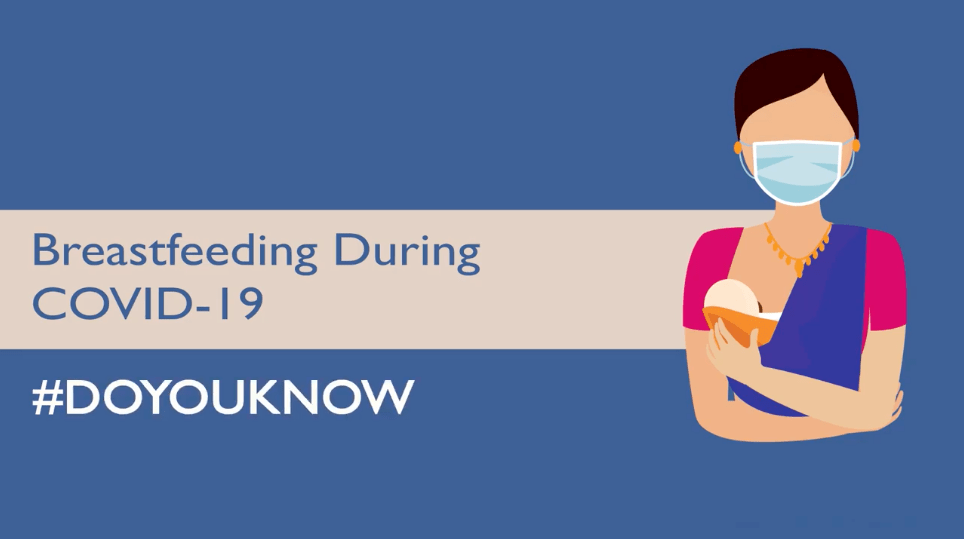
This video explains how a mother can safely breastfeed if she is suspected/confirmed to have COVID-19?
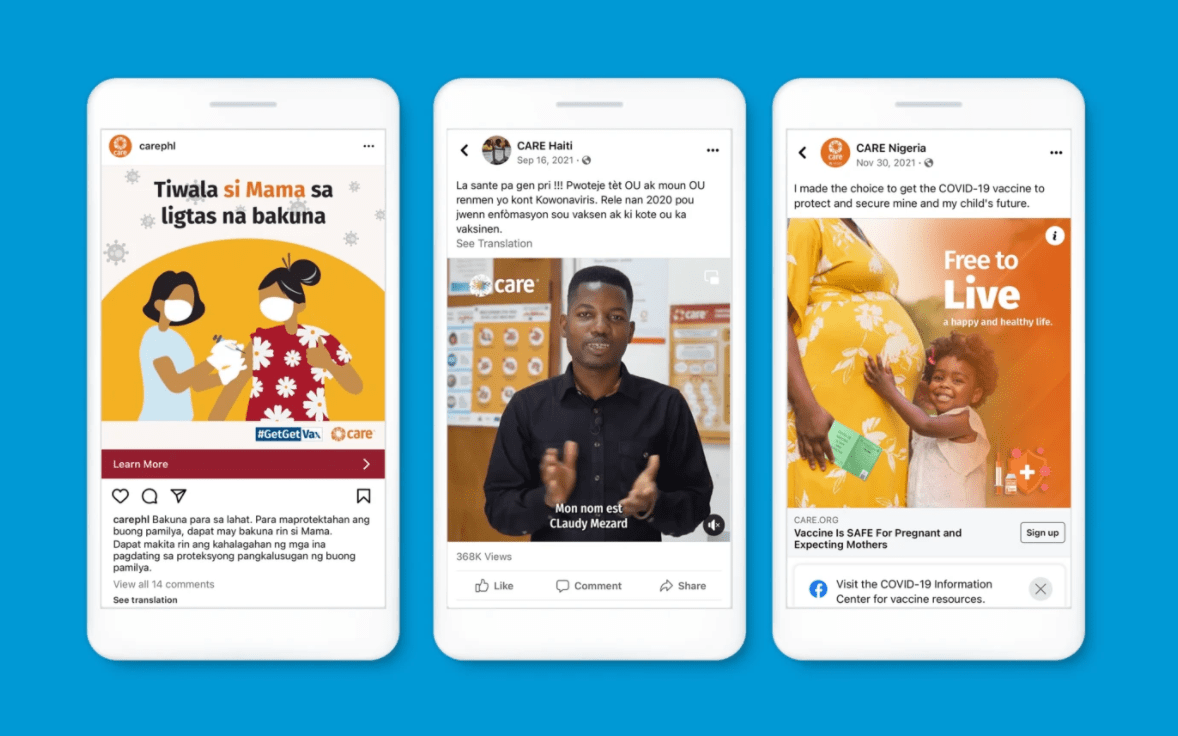
Throughout 2021, CARE launched 45 locally-led campaigns in 20 countries applying lessons learned during an eight-week training series with Meta. In the second half of 2021, participating countries built on their learnings from their first campaigns and attempted to answer new questions that arose all while creating culturally appropriate messaging to encourage the adoption of preventative behaviors and/or to build trust in the vaccine, even if it wasn’t yet available.
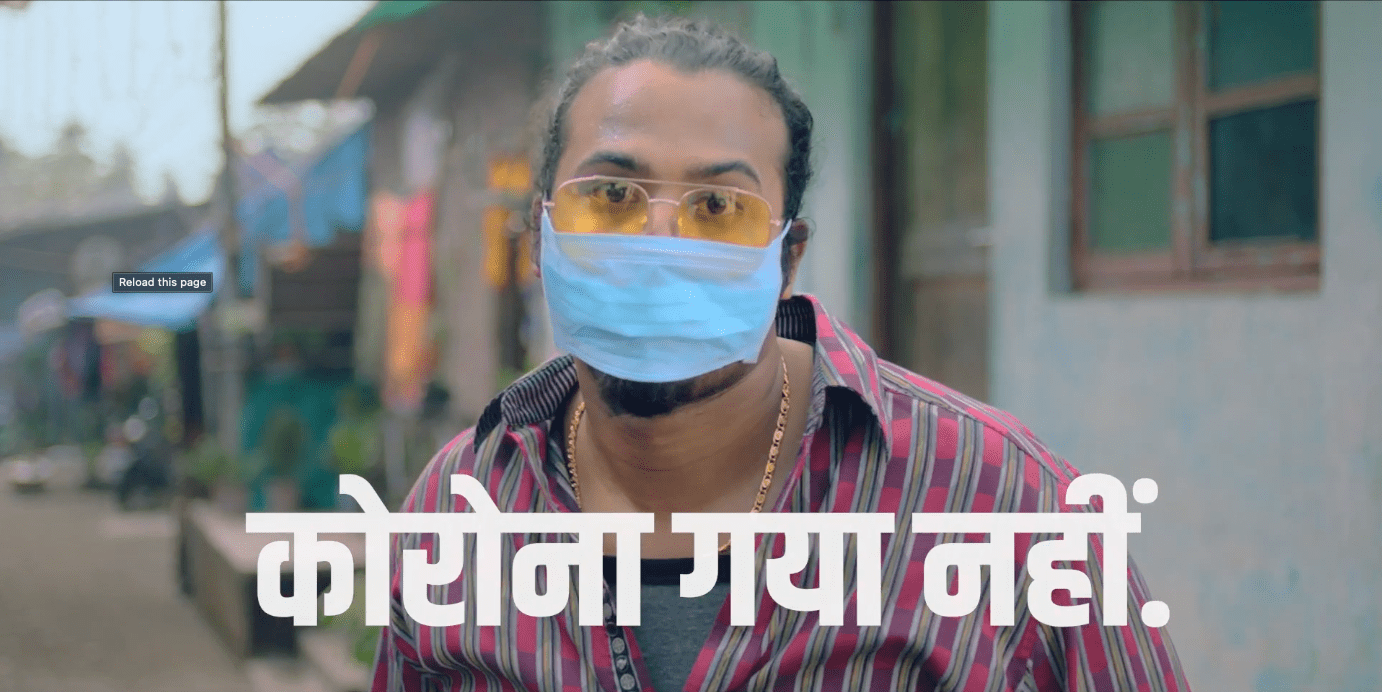
These resources were used by SNEHA (Society for Nutrition Education and Health Action) to educate people living in vulnerable urban informal settlements about COVID-19 Appropriate behaviour. These resources were used at a time when India was braving the first and second wave of the pandemic.
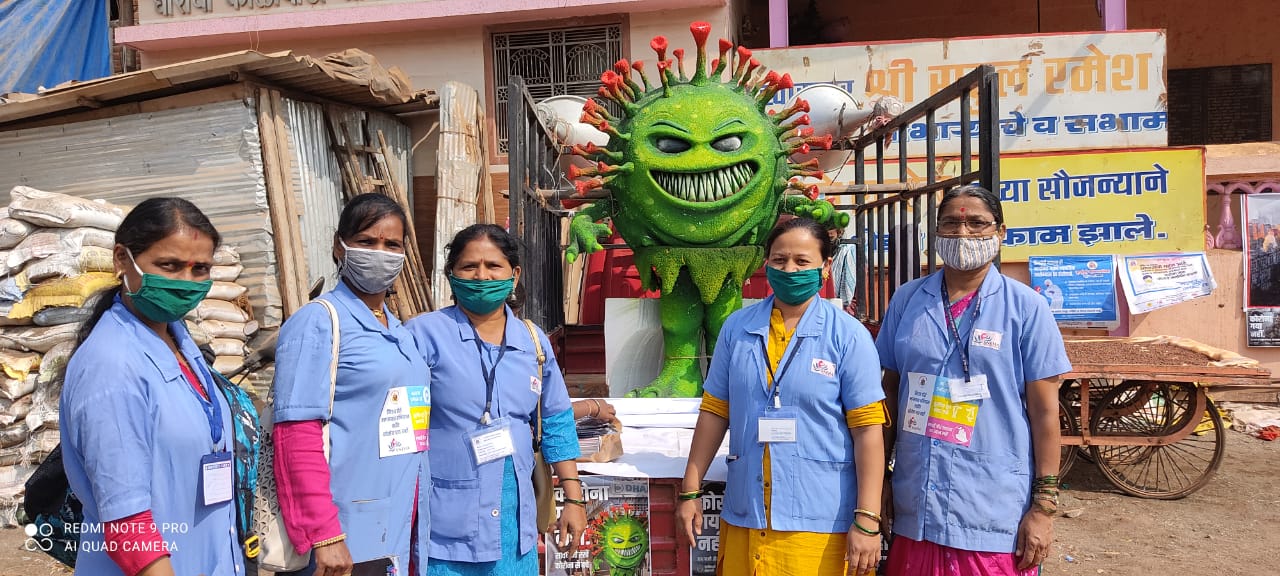
This report reflects perceptions, messages and activities at a time when India was braving the first and second wave of the pandemic.

Through a young couple’s arguments at a bus stop, this short video, in Entertainment-Education style, highlights the importance of getting vaccines, why a second dose is critical to bring your immunity to where your body can easily fight the virus, and why it is important to continue to wear masks, even if you are fully vaccinated. By countering popular misconceptions (from the young man), the young woman, and her educated bus stop companion model COVID-safe behavior.
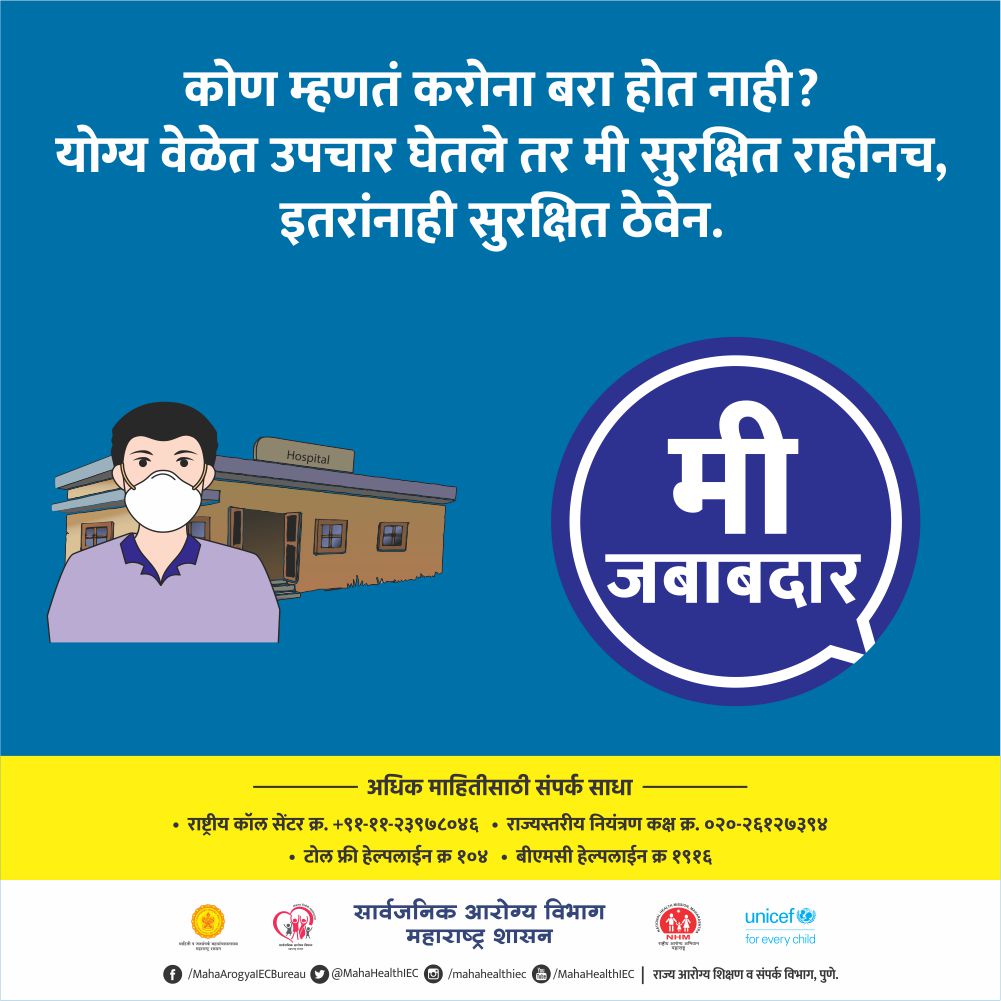
The I’m Responsible Campaign includes posters, social media for the general public, women and pregnant women to reinforce key COVID-19 Prevention Behaviors implemented by Maharashtra State in India. The materials are in Hindi.
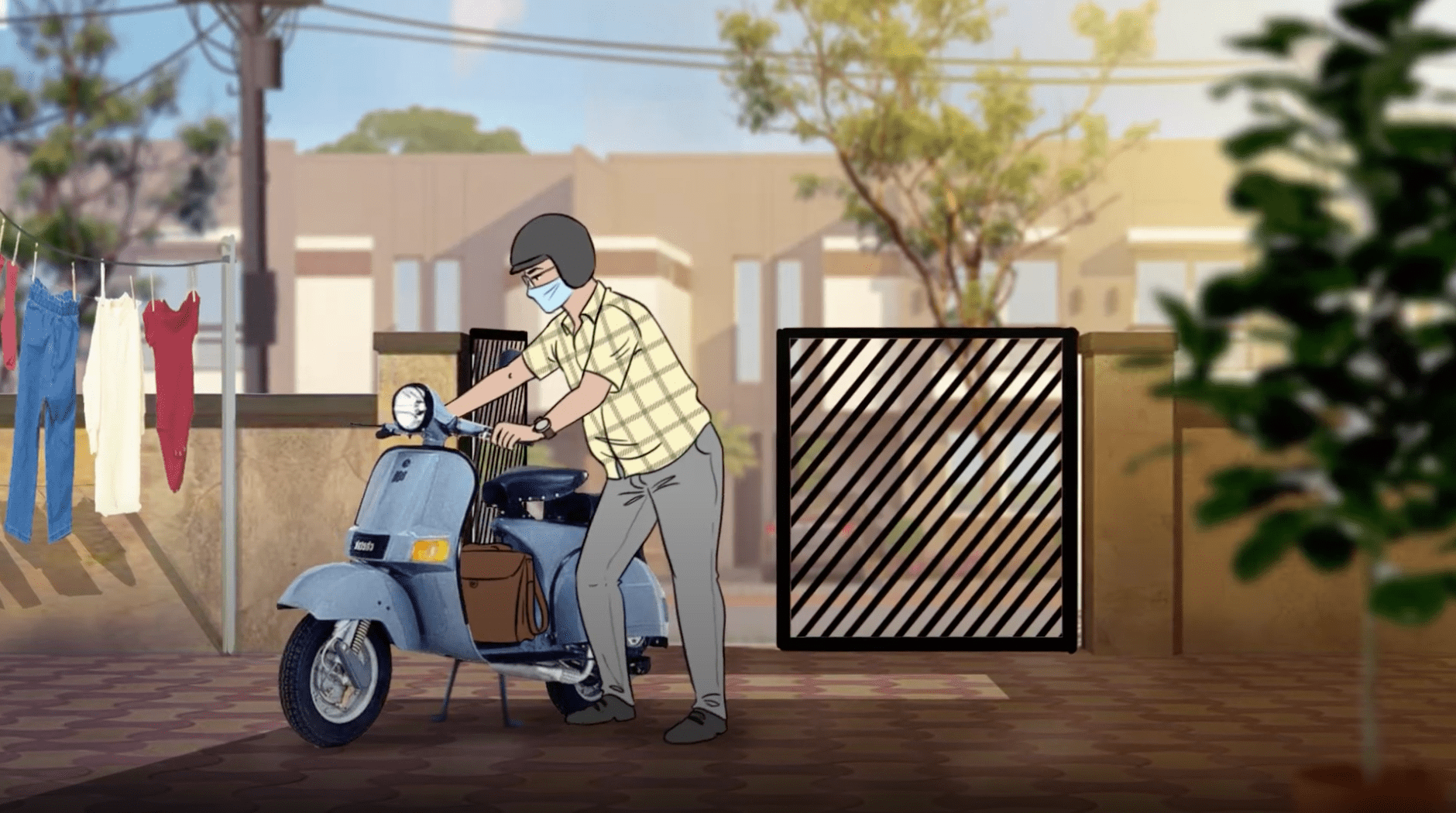
This video explains what the “New Normal” will look like in the community during the COVID-19 pandemic.
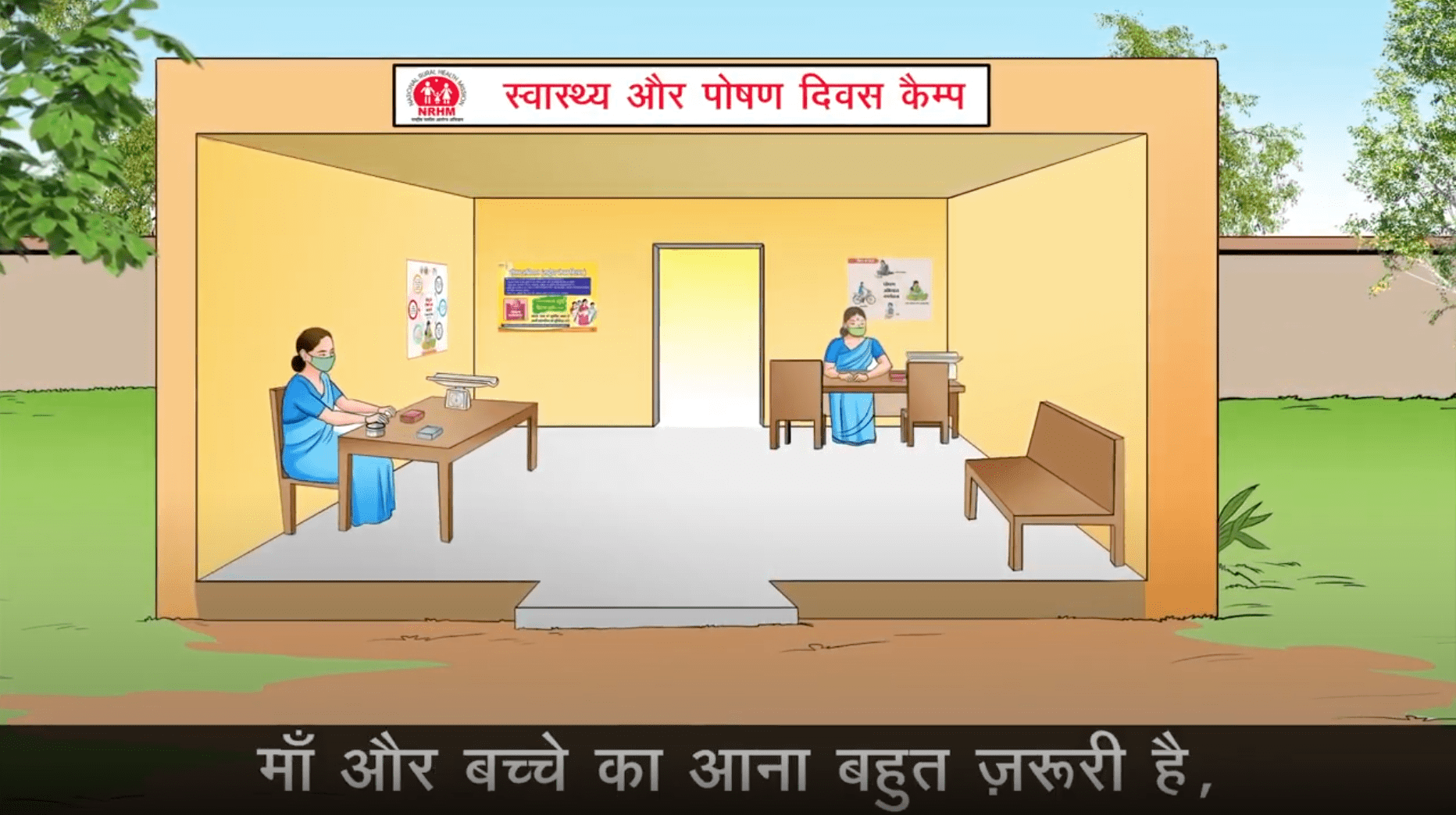
This video, produced by NITI Aayog, explains the proper procedure on visiting hospital during the COVID-19 pandemic.
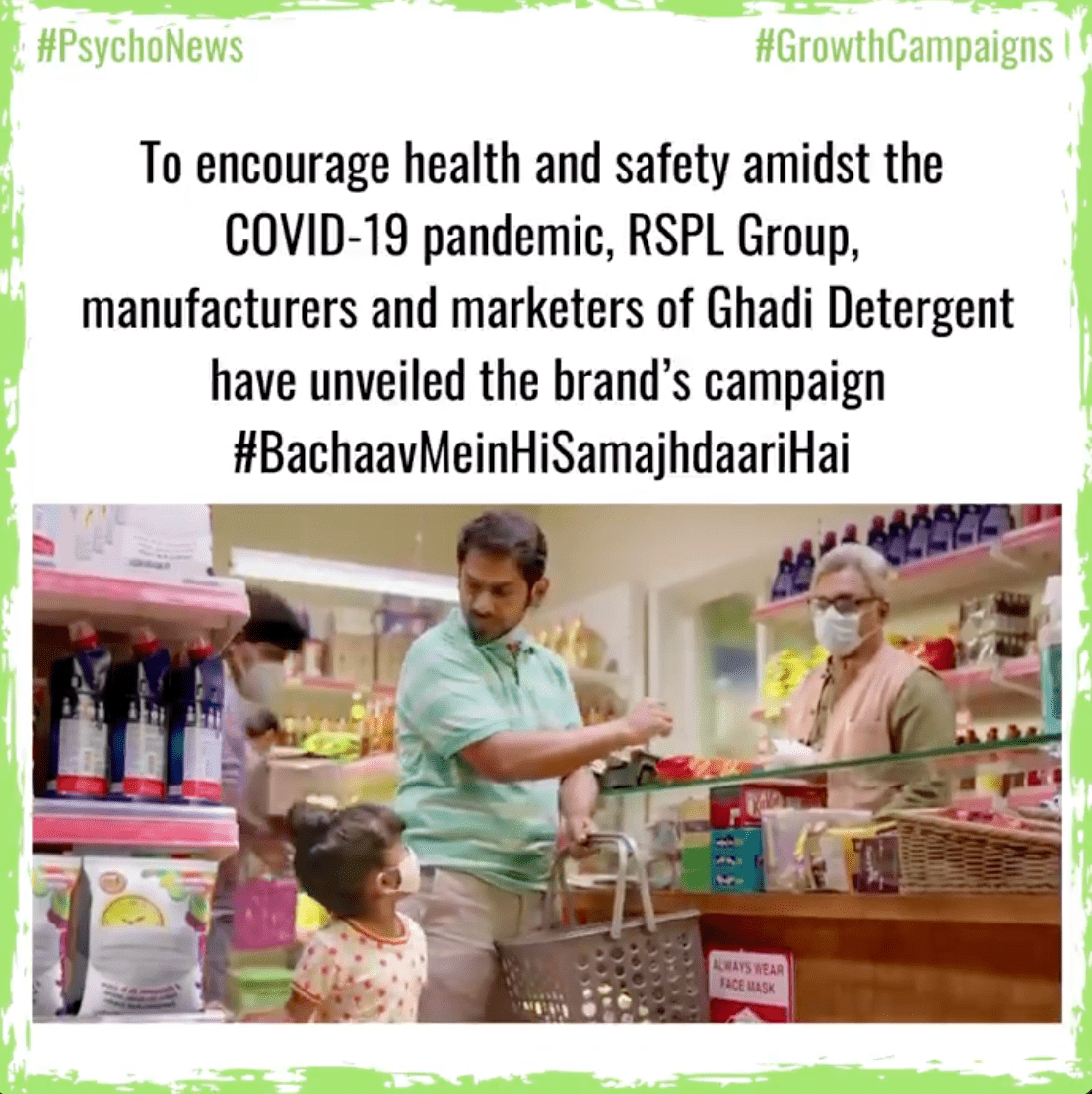
To encourage health and safety amidst the COVID-19 pandemic, RSPL Group, manufacturers and marketers of Ghadi Detergent have unveiled the brand’s campaign #BachaavMeinHiSamajhdaariHai. The video encourages mask wearing in order to slow the spread of COVID-19.
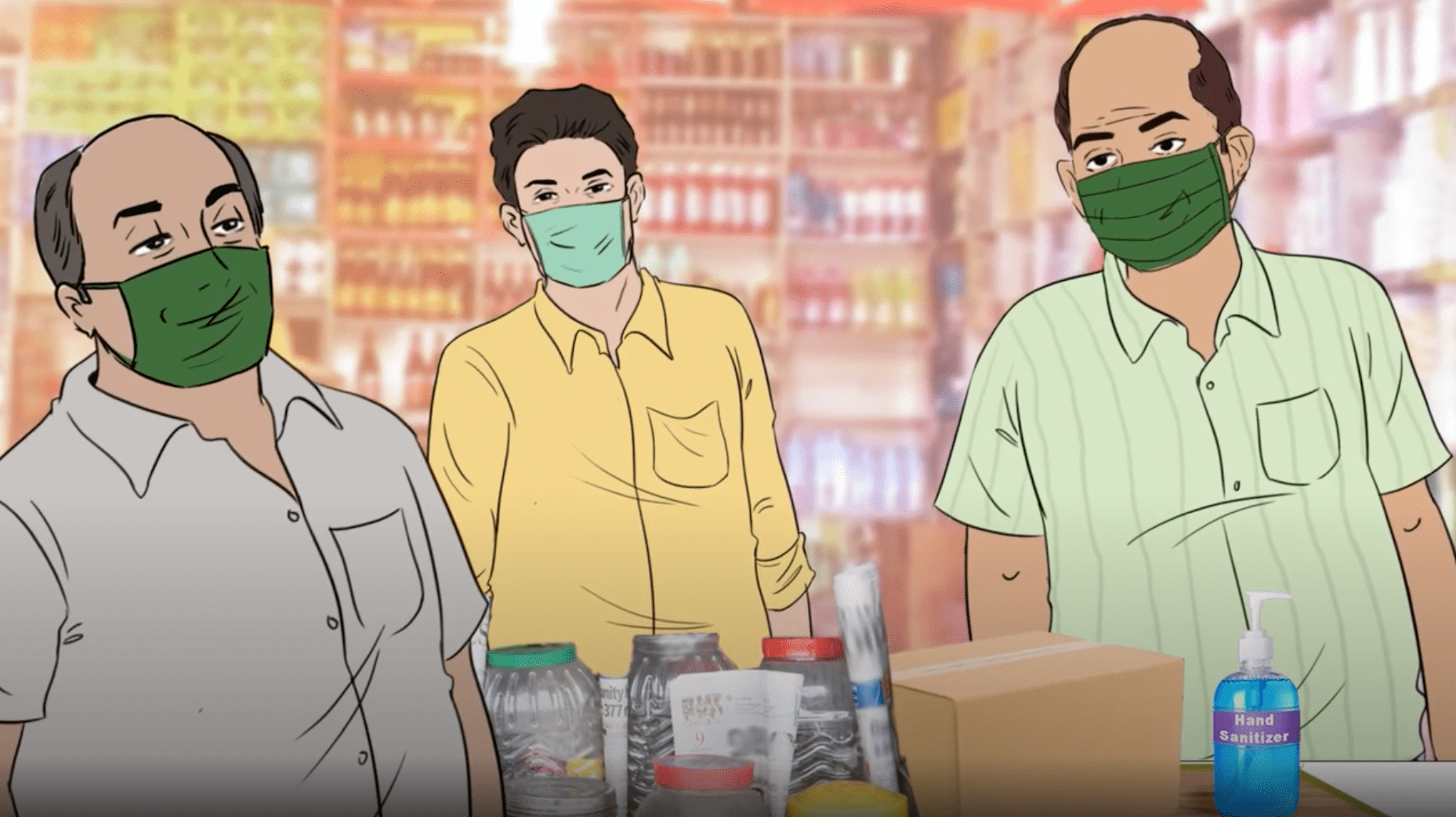
This video promotes several protective behaviors to adopt during the COVID-19 pandemic. These behaviors include: mask wearing, hand washing, social distancing, and staying home if you feel sick.
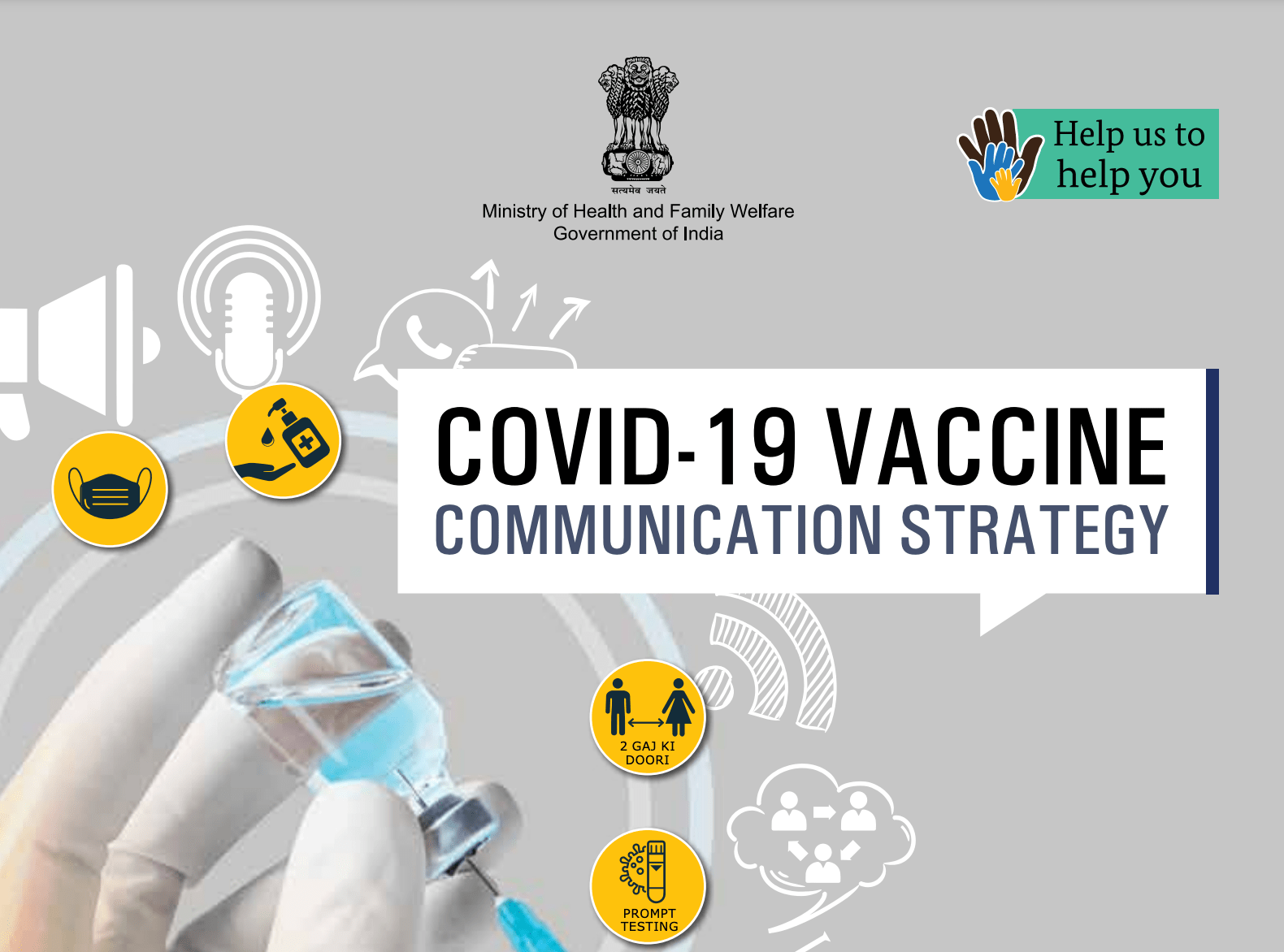
This strategy will serve as guidelines for implementation of National, state and District communication activities providing information on the COVID-19 vaccines and vaccination process to people across the country to generate awareness and to improve acceptance and uptake of vaccine.
The document will address issues of vaccine eagerness, vaccine hesitancy, provide information on new COVID-19 vaccines and reiterate to continue adherence to COVID appropriate behavior. It will also develop trust and greater confidence of people in vaccine by managing myths and misinformation.

The study aims to use a behaviour science and human centred design approach to understand the barriers to uptake of COVID-19 vaccines, and use this fundamental understanding to design interventions to drive vaccine uptake in Punjab and Maharashtra. Our methodology involved remote in-depth interviews with stakeholders, and users with barriers to COVID-19 vaccination in rural and urban Nagpur, Bathinda and Faridkot.
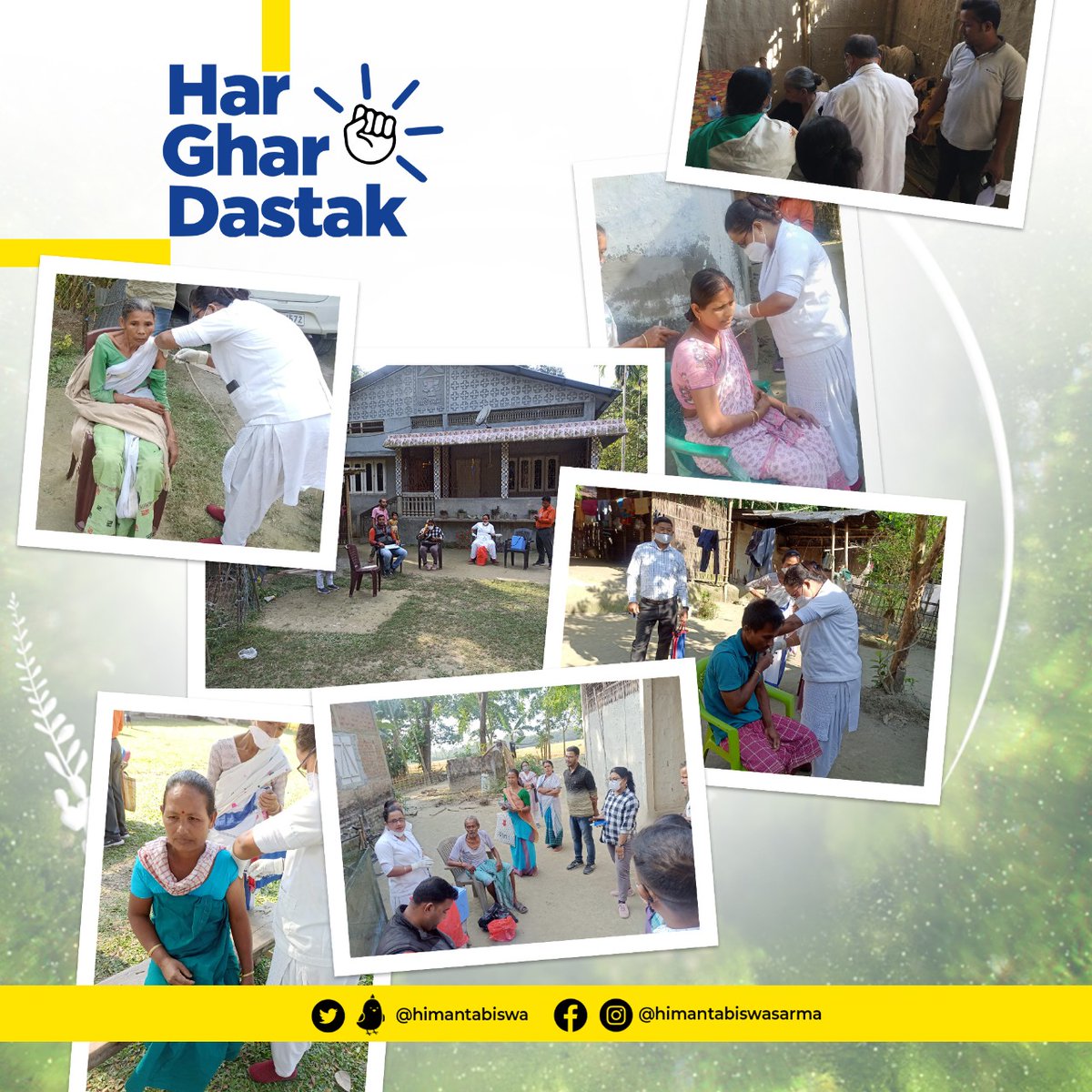
This is a tweet from the #HarGharDastak Campaign in India.
Get the latest updates of uploaded resources of this country.